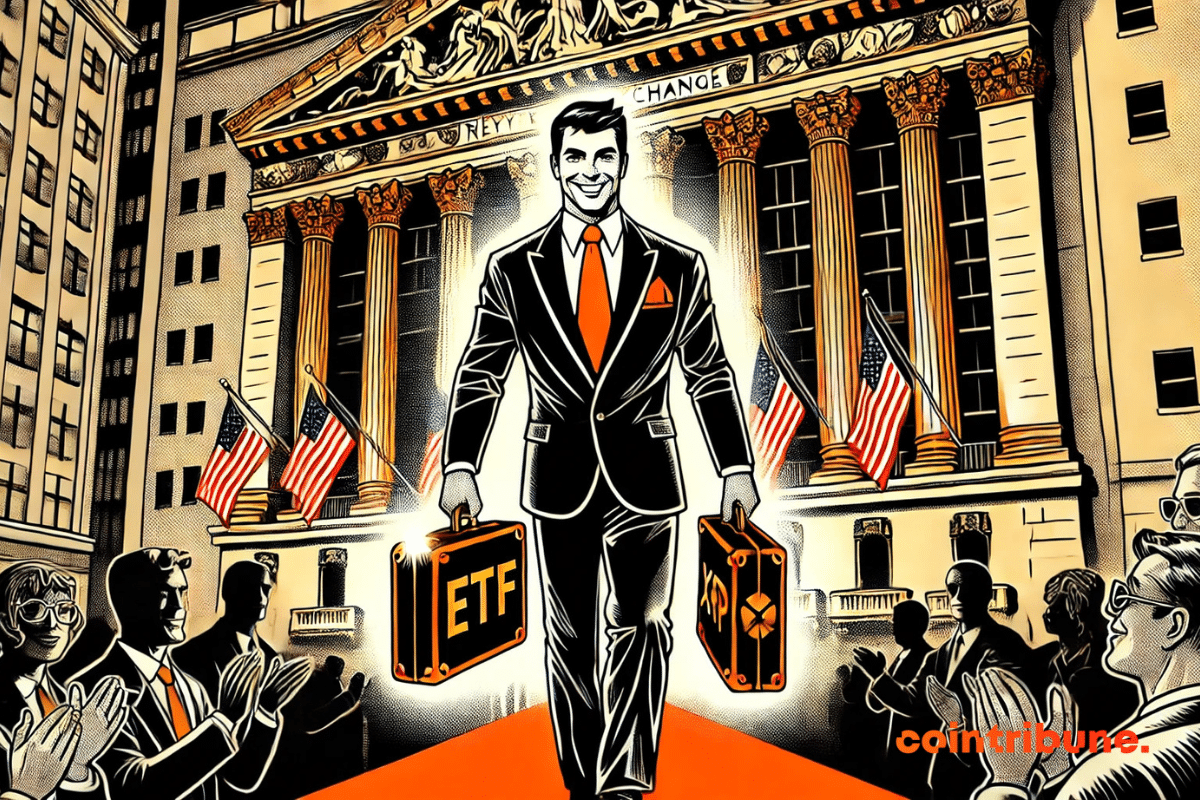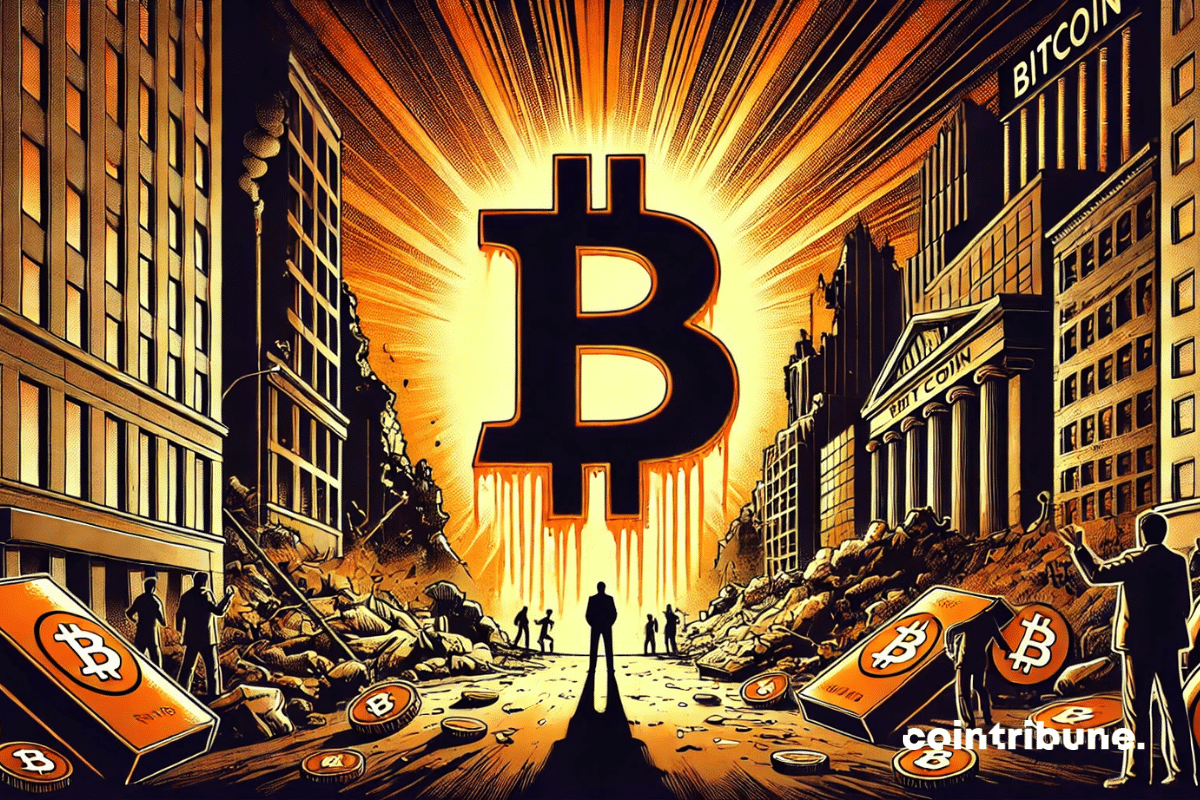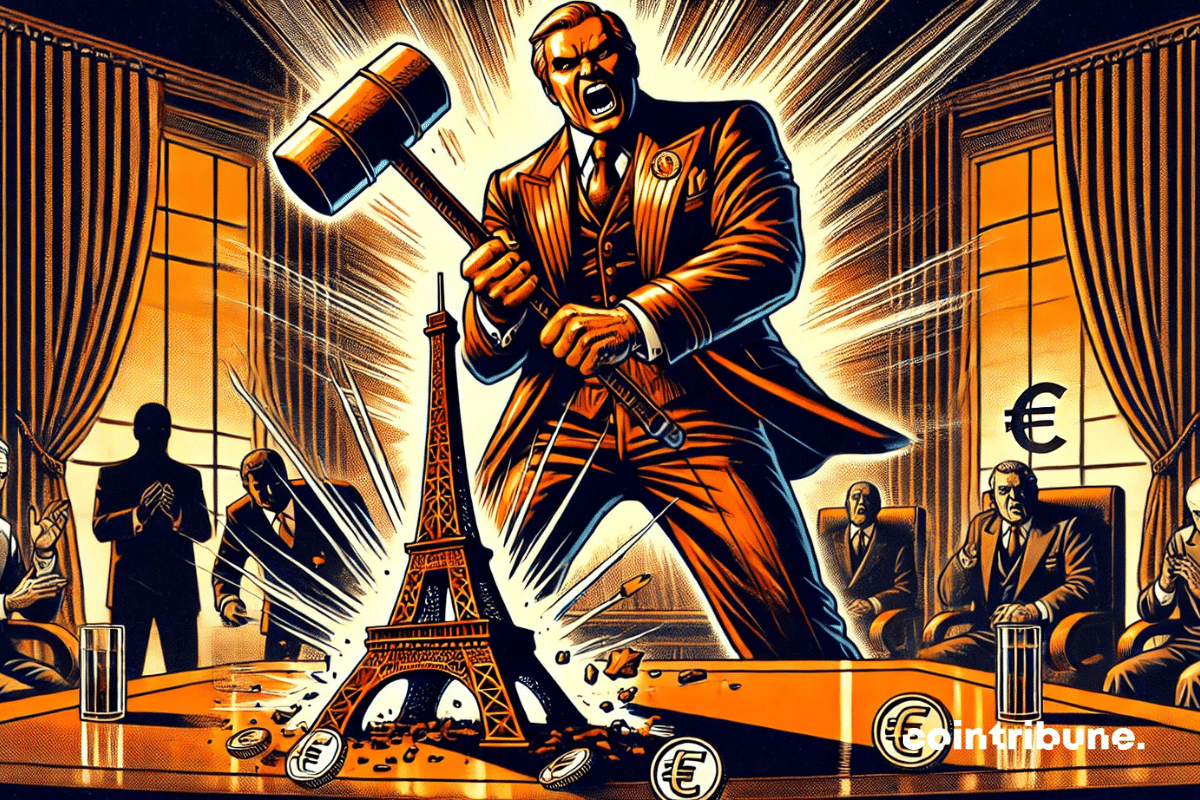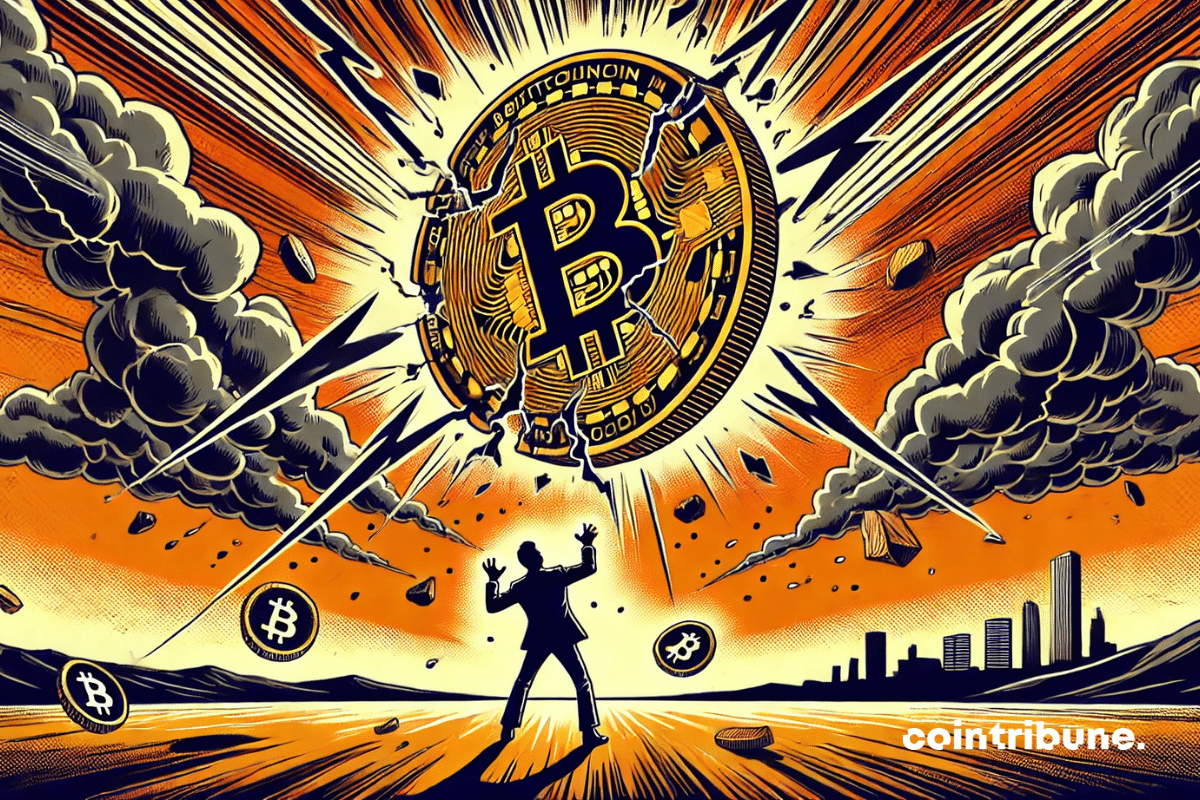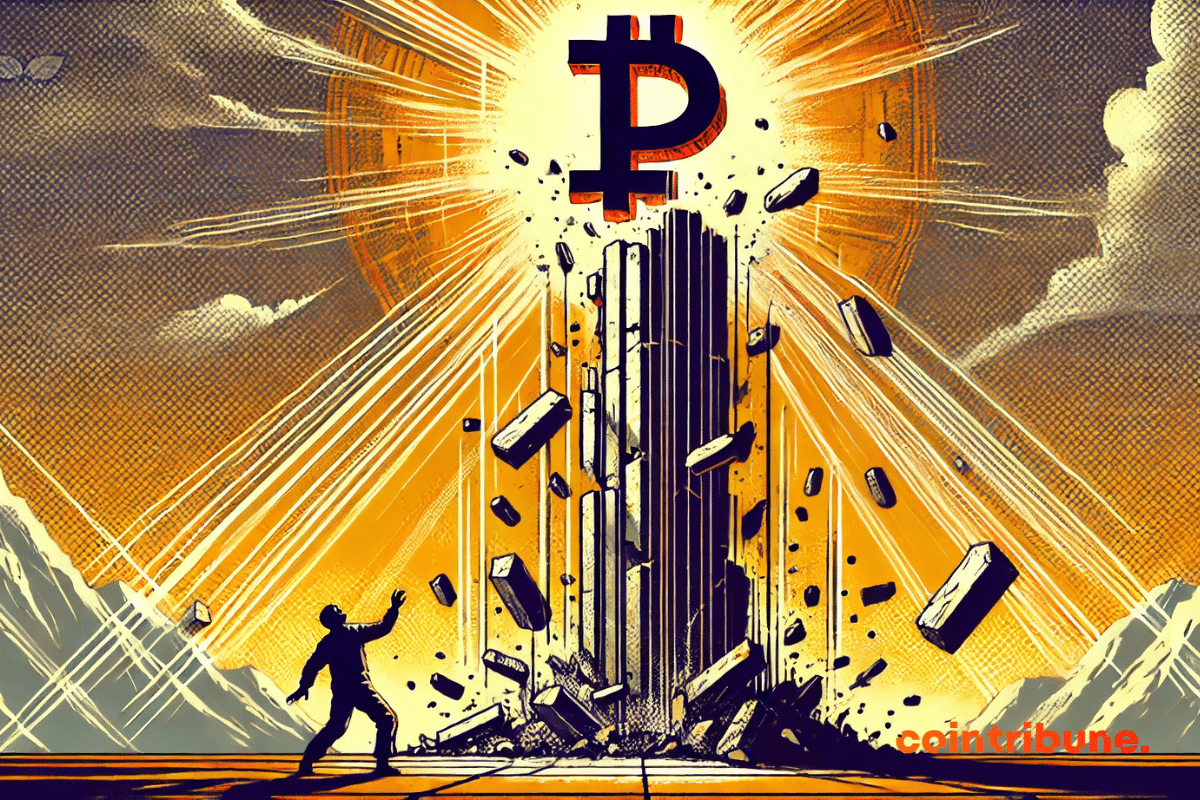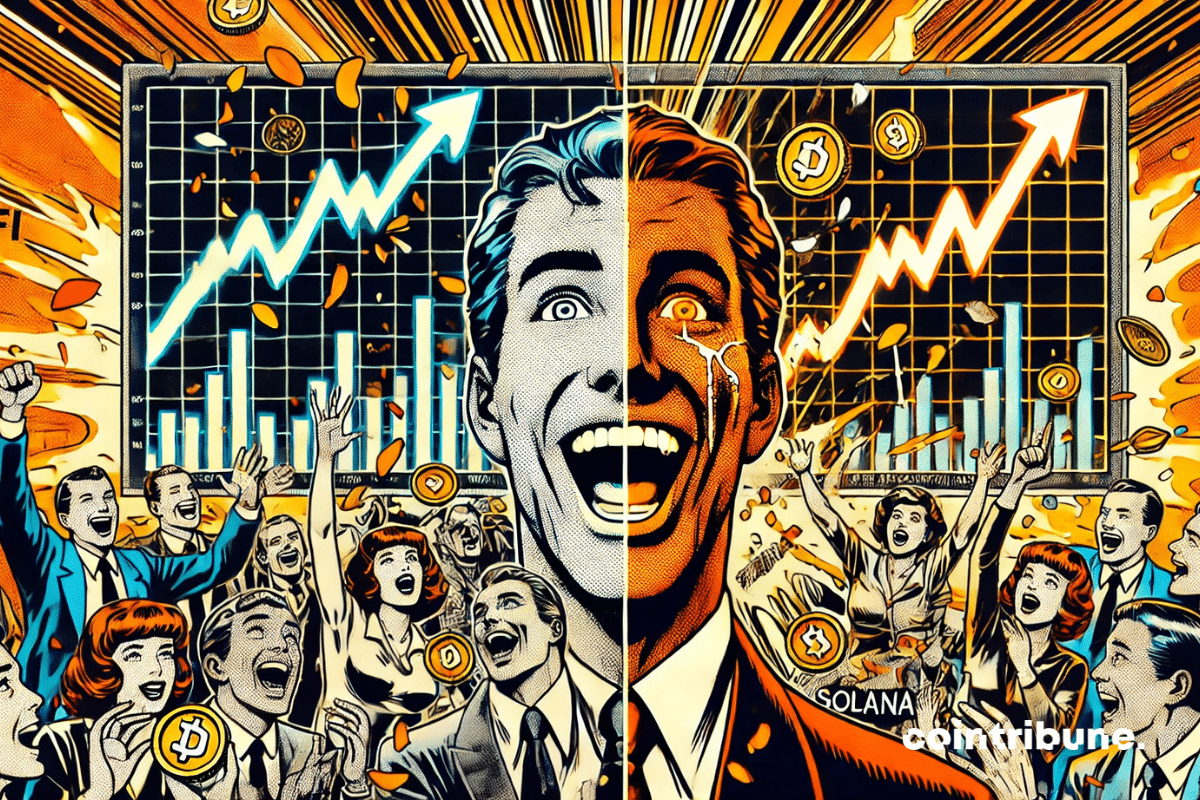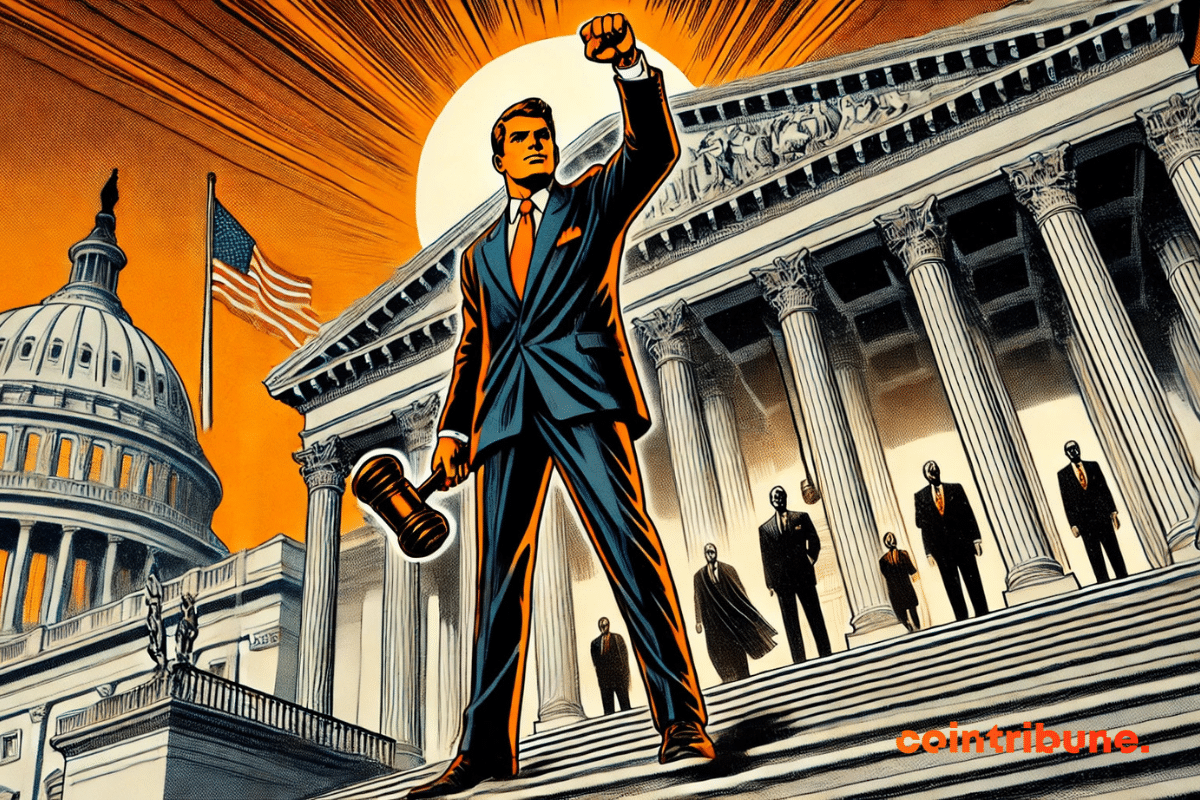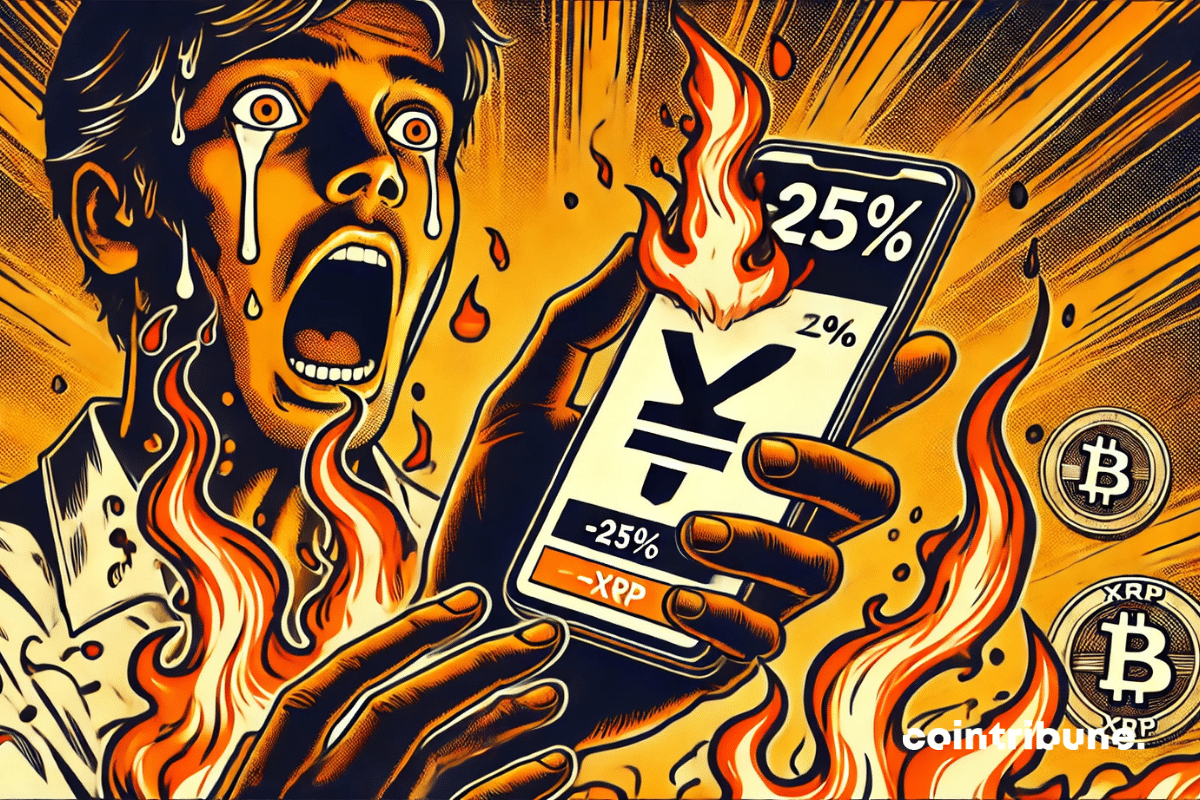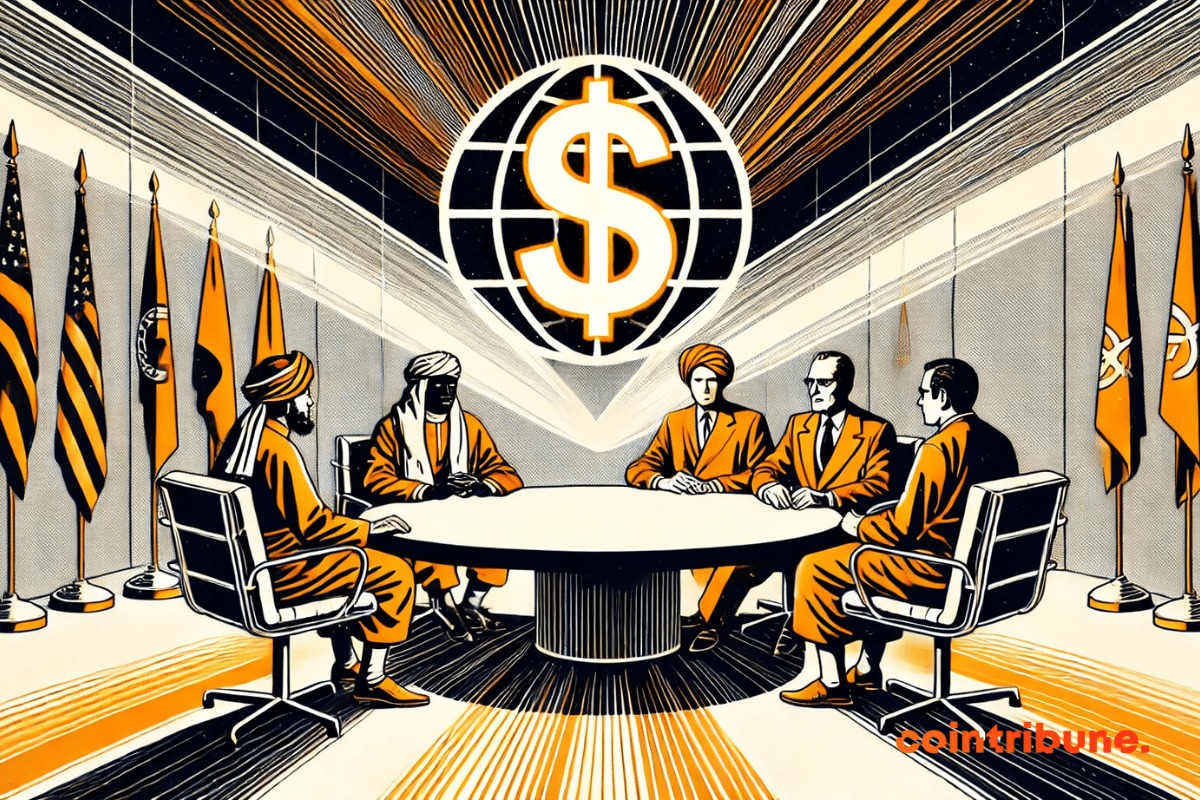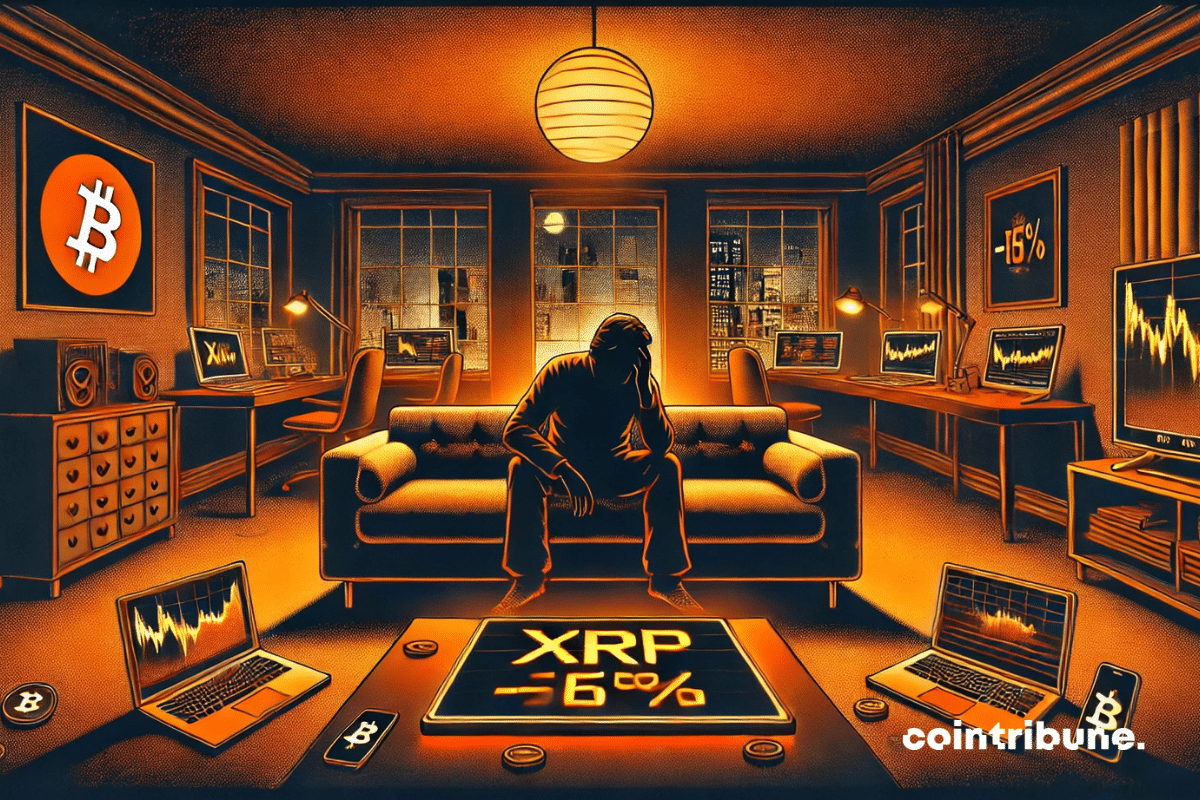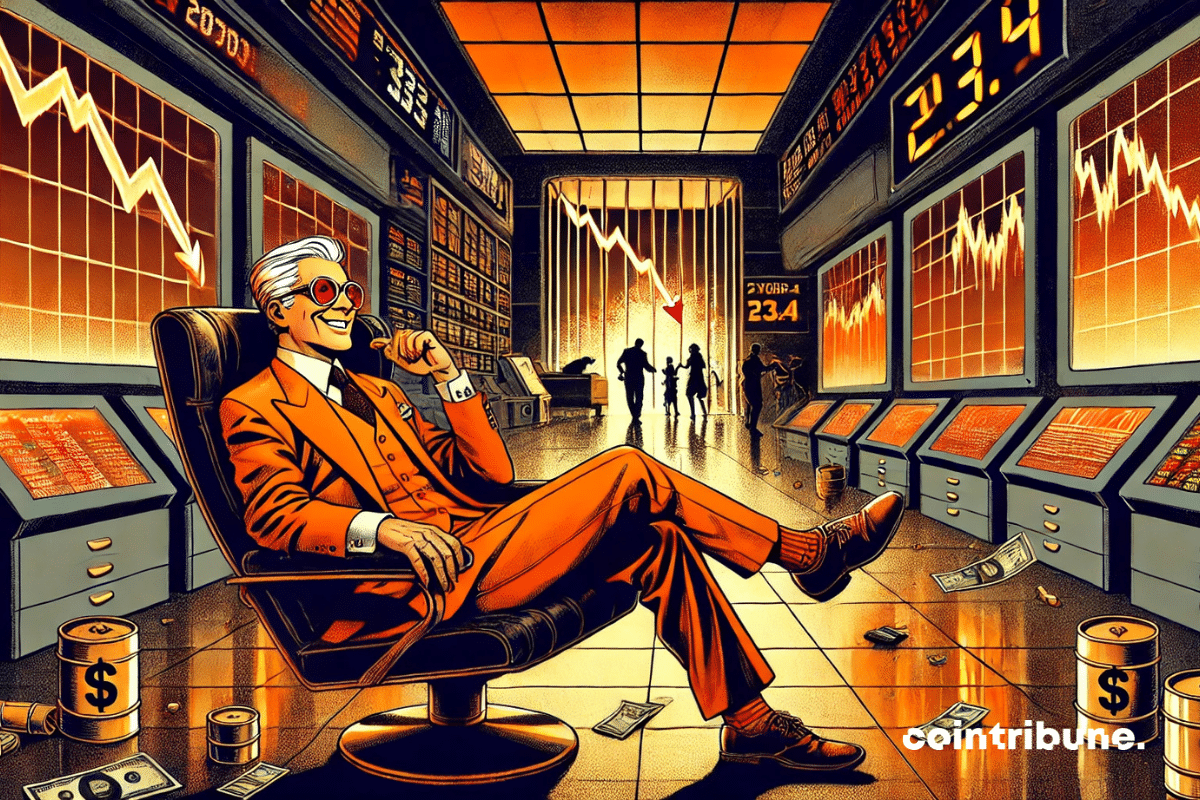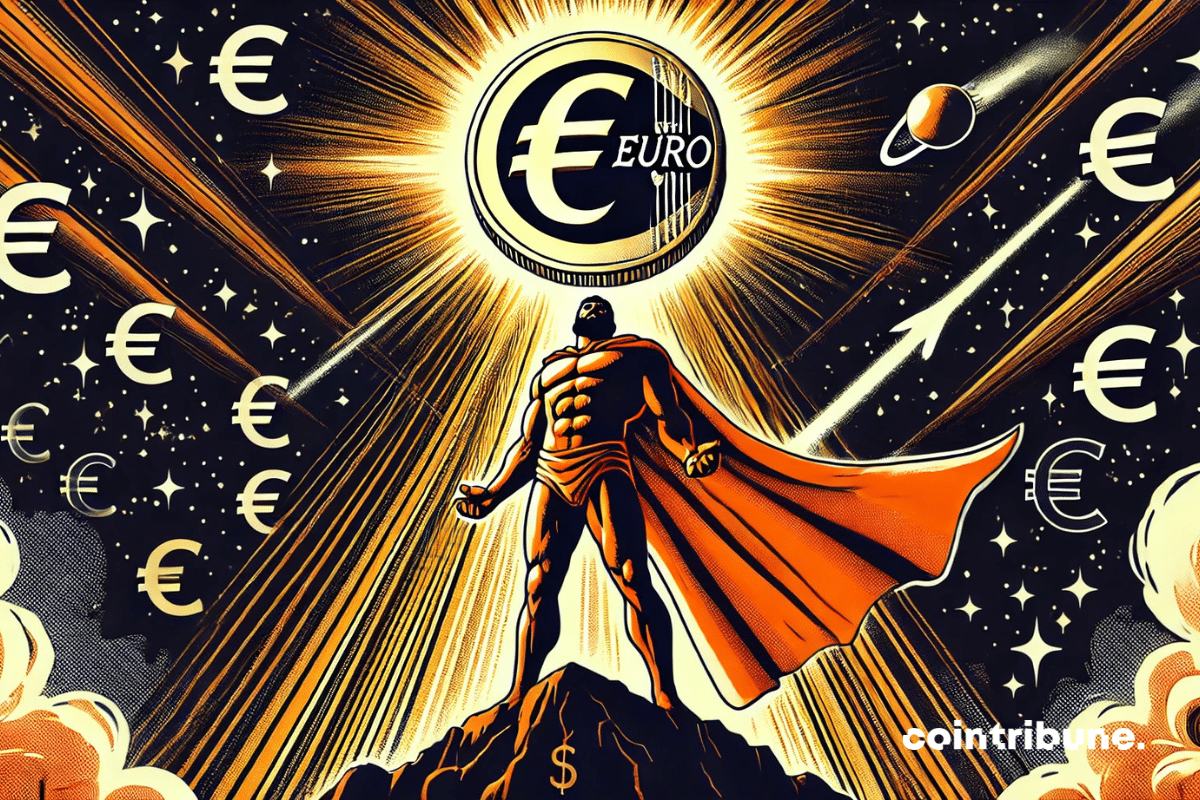Wall Street opens its doors to XRP. Teucrium Investment Advisors is set to launch the very first ETF backed by Ripple's native asset on American soil. A leveraged product, with no direct holdings, which reflects the growing desire of traditional financial markets to capture the volatility (and potential profits) of the crypto ecosystem. While the industry is still waiting for the green light for a spot XRP ETF, this launch sounds like a strategic accelerator.
Home » Archives for Luc Jose Adjinacou » Page 3
Luc Jose A.
Diplômé de Sciences Po Toulouse et titulaire d'une certification consultant blockchain délivrée par Alyra, j'ai rejoint l'aventure Cointribune en 2019. Convaincu du potentiel de la blockchain pour transformer de nombreux secteurs de l'économie, j'ai pris l'engagement de sensibiliser et d'informer le grand public sur cet écosystème en constante évolution. Mon objectif est de permettre à chacun de mieux comprendre la blockchain et de saisir les opportunités qu'elle offre. Je m'efforce chaque jour de fournir une analyse objective de l'actualité, de décrypter les tendances du marché, de relayer les dernières innovations technologiques et de mettre en perspective les enjeux économiques et sociétaux de cette révolution en marche.
Bitcoin is catching everyone off guard. Amid a stock market collapse triggered by Trump's new tariffs, the cryptocurrency is showing unexpected resilience. While the S&P 500 and Nasdaq are plummeting, and gold is struggling to reassure, BTC is gaining ground. This movement shakes up the certainties about its correlation with traditional markets and rekindles the debate: is Bitcoin establishing itself as a fully-fledged asset during systemic crises?
A new trade confrontation is beginning between the two shores of the Atlantic. Through the announcement of a 20% tariff on all European products, Washington directly targets exports from the Old Continent. France, on the front line, faces the threat of a major economic shock. Between the vulnerability of strategic sectors and diplomatic urgencies, Paris must react quickly. Behind this American decision lies much more than a tariff battle: the entire architecture of transatlantic trade relations is at stake.
The amount of Ethereum available on exchanges has just dropped to its lowest level since 2016. A strong signal, as on-chain movements trigger growing interest among analysts looking for leading indicators. This scarcity on exchanges could signal an imminent imbalance between supply and demand, which could lay the groundwork for a potential tightening of availability in the market.
The Trump administration has just triggered a real commercial earthquake. Through the imposition of a universal customs tax of 10%, soon raised to 34% for certain countries, Washington is reviving an aggressive protectionist strategy. This decision, counter to multilateral rules, threatens to reconfigure global trade and is already prompting reactions from more than 50 states. In a tense international context, this major shift could well mark the beginning of a new era of economic confrontation.
While stock markets are experiencing a historic loss, Bitcoin is losing ground and has fallen below 80,000 dollars. This decline, far from being trivial, reignites the debate about its safe haven function. At a time when trade and political tensions are reshaping the global economy, the line between traditional assets and cryptocurrencies is blurring. A moment of truth is therefore approaching for BTC and for investors' allocation strategies.
While instability dominates the crypto universe, Pi Network surprised everyone with a 50% surge in just 24 hours. This spectacular rebound, following a prolonged decline, rekindles interest in a project still seeking institutional recognition. However, behind the apparent enthusiasm, contradictory signals remain. Does this rebound mark the beginning of a solid recovery, or is it merely a temporary spike?
When the crypto market succumbs to hype and spectacular narratives, fundamental signals get drowned out in the noise. However, it is precisely in these phases of disconnection between valuation and on-chain data that real dynamics take shape. Solana embodies this paradox today. Driven by metrics in sharp progression, yet underestimated by the market, the blockchain offers a very real potential that few seem willing to face.
As the American economy wobbles, Donald Trump secures a strategic victory in the Senate with the unlocking of a controversial budget. Behind this success lies a political clash with global repercussions. For both investors and crypto players, this vote opens an uncertain sequence that could redefine financial balances and impact the trajectory of markets.
While the crypto market seeks new breath after a dynamic start to the year, XRP is sinking into a bearish spiral. Ripple's asset has already lost more than 35% since its peak in January, and technical indicators point to a possible worsening. An unfavorable chart setup could lead to an additional drop of 25% this month. In this climate of uncertainty, XRP appears to be one of the most fragile assets at the moment, exposed to increasing selling pressure and disengagement from major investors.
In a geopolitical context undergoing a major reshuffle, two significant initiatives are shaking the hegemony of the dollar. Brazil and China are making a strategic shift by favoring their national currencies for bilateral exchanges. For their part, Russia and Iran are announcing the launch of a new common currency to circumvent Western sanctions. These distinct yet converging movements illustrate a shared desire among influential BRICS members: to build a financial system that is less dependent on the greenback and to assert monetary sovereignty in the face of external pressures.
The sudden calm that falls over a network as active as XRP is never trivial. After a stunning rally at the end of 2024, Ripple's blockchain is experiencing a plunge in its activity. This drop of 65% in just a few weeks is more than just a simple adjustment. It reveals a worrying loss of momentum and raises questions about the strength of the market. Behind the numbers, an entire speculative dynamic seems to be wavering.
In a global market in complete chaos, Warren Buffett stands out as an exception. While the richest fortunes are recording massive losses, the American investor makes 23.4 billion dollars in just a few months. This performance contrasts with the general trend and raises the question: how does the oracle of Omaha manage to thrive where so many others falter? At the head of Berkshire Hathaway, he once again demonstrates that discipline, foresight, and rigorous management can still dictate the rules, even in times of instability.
In a single session, the euro surged 2.15% against the dollar, reaching $1.109, its largest increase since 2015. This abrupt jump exceeds the mechanics of exchange rates. It signals a sudden loss of confidence in the American currency. Through this shift, markets appear to be reassessing the balance of power among major currencies, in a context where macroeconomic signals and central bank choices are redefining monetary fault lines.
In a single session, the euro surged 2.15% against the dollar, reaching $1.109, its largest increase since 2015. This sharp rebound goes beyond the mechanics of exchange rates. It signals a sudden loss of confidence in the American currency. Through this shift, markets seem to be reevaluating the balance of power between major currencies, in a context where macroeconomic signals and the choices of central banks are reshaping the lines of monetary fracture.
